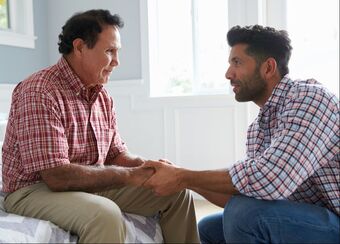By, Nicole Ruggiano, PhD, MSW When caregivers tell me how much their loved one's dementia symptoms upset them, they are most upset when their spouse or parent does not recognize them anymore. I understand this first hand. When my grandmother's dementia became severe, she would become scared and upset when I visited her. She didn't know who I was anymore. To her, I was a stranger who entered her home uninvited. There was nothing I could say to make her understand that I was her granddaughter. I even pointed to photographs of me that were hanging in her apartment to show that she did, in fact, know me. However, this didn't help and she remained agitated and scared. While this was an emotional process for me, it is a common symptom for people with dementia and is a result of the changes to the brain caused by Alzheimer's disease or other type of dementia.
0 Comments
By, Nicole Ruggiano, PhD, MSW Caregiving is hard. It can be hard, physically and mentally. For many caregivers, this results in a mix of emotions from day to day. Even though it's challenging, caregivers often feel good about being able to provide care for their loved one. However, sometimes caregivers also feel guilty. Take Kim*, a 30-year old caregiver in in Birmingham, who talked about her experience with guilty feelings during an interview for one of our projects: Sometimes I feel like I’m not doing enough, but I don't know what else I can do. Then there’s the guilt. I think I have a lot of guilt about not recognizing more of my Dad's symptoms in the beginning. Even now, I think there’s a little bit of guilt that’s just surrounding the diagnosis itself. You’re watching somebody really decline. It could be two days, it could be another 10 years. |
Caregiving 101The Caregiving 101 is a resource for caregivers in Alabama who want to learn more about caregiving and dementia. Archives
August 2023
What would you like to learn more about?
All
|
205-348-4654

 RSS Feed
RSS Feed
